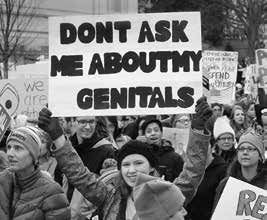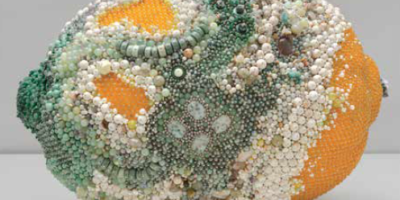Lilith Feature
This Year, We Will Fight for Abortion.
Abortion rights are suspended from a precipice in states across the country. Activists are fighting not only unjust laws, but also our own side’s fatigue after decades of backlash.
How to find clarity and purpose in the middle of this sense of overwhelm, and share space with other urgent issues — from the environment to immigration? Here is how an intergenerational cross-section of leaders, activists and writers plan to rededicate their selves to abortion rights in the coming months. Within each of these plans is a list of ways for us, too, to take action.
In 2020 I will work to elect those who will let women decide when or whether they will have a child and support the centers that are providing the services to women— including creating them ourselves! Only if we organize, can we change this world.
HEATHER BOOTH is an American civil rights activist, feminist, and political strategist and the founder of the Jane Collective, a pre-Roe network of underground abortion services.
I will become an abortion doula to guide folks undergoing the procedure.
STEPH BLACK is a writer and activist in DC who is passionate about the intersections of Judaism and feminism.
I plan to do a number of things. Here are some:
• Make sure everyone knows about Euki, a free app released by Women Help Women that has information about how and where to access an abortion in the U.S., including how to self-manage an abortion.
• Talk more openly and honestly about the challenges of motherhood in hopes of giving others permission to do the same, and point to the systemic inequalities (lack of universal childcare, lack of one-year paid parental leave, workplaces hostile to families, etc) that lead to this so moms stop blaming themselves for not being perfect. We can’t “life hack” our way out of parenting problems when really, the systems are failing us. This is reproductive justice too.
• Hold the leaders of reproductive health, rights, and justice organizations accountable for creating healthy work environments for their staff, who are doing the majority of the work trying to keep abortion legal in this country and deserve to have the best benefits and salaries.
• Hold journalists, movement leaders, and funders accountable for centering the voices, experiences, and leadership of women of color, especially Black women, and funding them at the highest level to do reproductive health, rights, and justice work
• Center racism and systemic equities in all conversations about abortion, and make sure every panel, article, or event about abortion has multiple people who’ve had abortions on/in it.
• Continue to make monthly donations to my local abortion fund and abortion funds in the South and Midwest, and to All-Options, who provide emotional support to people through all pregnancy experiences.
STEPH HEROLD is a researcher who studies depictions of abortion on TV and film while chasing after a two-year-old and a dog.
This year I’m committing to calling out abortion stigma when I see and hear it. Abortion stigma is negative and incorrect beliefs about abortion. Sometimes abortion stigma is easy to recognize, i.e. “Abortion is dangerous.” This is demonstrably untrue, according to actual science. Sometimes, though, it’s more subtle and insidious, like, “I would never have an abortion, but it’s fine for other people,” and, “No one wants to have an abortion.” Abortion stigma literally prevents people from being able to access abortion care and from seeking it, even when they know it’s what they want, because yes, sometimes people actually do want to have abortions. So this year, I’ll be unrepentantly yelling about abortion stigma, and this is your warning.
CHANEL DUBOFSKY writes fiction and non-fiction in Brooklyn, NY.
As a writer, this year I will find new ways to deepen and widen the conversation about abortion, without sacrificing passion or avoiding conflict. Stories can be bridges.
ELLEN MEEROPOL is the author of four novels, Her Sister’s Tattoo, Kinship of Clover, On Hurricane Island, and House Arrest.
I welcome 2020 with unapologetic enthusiasm for abortion, plans for relentless organizing to dismantle reproductive oppression, and the knowledge that we have nothing to lose but our chains. Onward, until justice is won!
PAMELA MERRITT, co-director of Reproaction, a new direct action group forming to increase access to abortion and advance reproductive justice.

Anyone who is passionate about defending reproductive freedom can make an impact in this fight. You can send a message to your lawmakers — especially if you live in one of the 31 states that have introduced or passed extreme bans on abortion this year alone — and make it clear that you expect them to stand up for reproductive rights.
You can help make our work possible by donating to NARAL Pro-Choice America, an abortion fund in your community, or another organization fighting for reproductive freedom.
If you’re ready to dig deeper, you can sign up to volunteer and attend events in your community with NARAL.
Actions as simple as informing yourself about the threats to abortion access and talking to your friends and family about how high the stakes are can be incredibly powerful because the anti-choice movement depends on people’s silence and the spread of disinformation about abortion to advance their deeply unpopular agenda.
ILYSE HOGUE, president of NARAL Pro-Choice America
Here’s a little-known fact: federal judges serve lifetime appointments. That means that no matter who is sitting in the Oval Office in a few years or even decades, an unprecedented number of right-wing federal judges personally nominated by President Trump will still be sitting on the bench. As a direct result, generations of women could lose their reproductive rights. They will lose them on our watch.
It isn’t often that you see crowds protesting outside of Federal District Courts, as thousands did in D.C. during the Brett Kavanaugh hearings.
It is time for that to change.
We must harness that energy in our local communities, too. Federal courts, unlike a bill in Congress or a legislative push in a state house, seem distant to most voters. But changing them is completely within reach. And women can and should drive that change — before, during and after these judges are nominated.
Democrat and Republican members of Congress need to be held responsible for allowing the undermining of our courts.
SHEILA KATZ, CEO of National Council of Jewish Women
We will raise awareness of Crisis Pregnancy Centers and the danger they pose to reproductive healthcare through our Pro-Truth campaign. Crisis Pregnancy Centers exist as a service arm of the anti-abortion movement, working to keep pregnant people from being able to access the full spectrum of reproductive healthcare choices, including abortion. Our campaign works to educate people about Crisis Pregnancy Centers, and to advocate for laws to regulate these fake clinics. You can find out more and get involved at protruthny.org.
AVIVA ZADOFF is the Director of Advocacy and Volunteer Engagement National Council of Jewish Women New York





